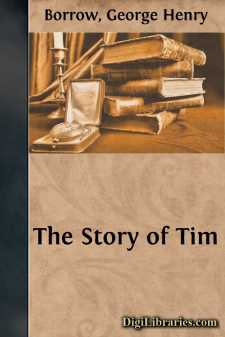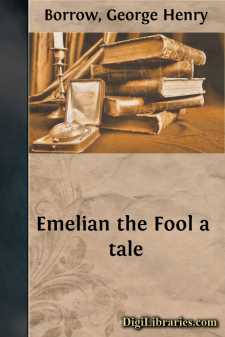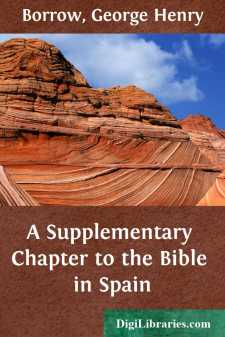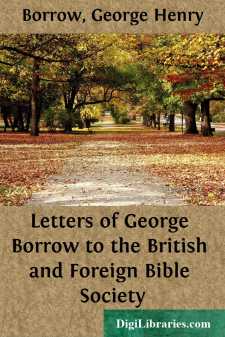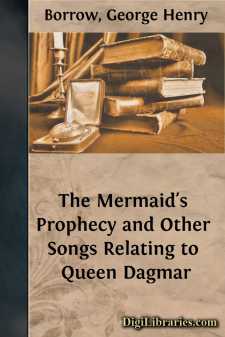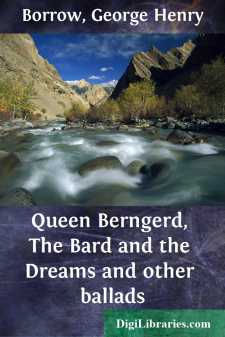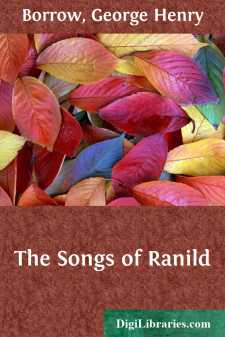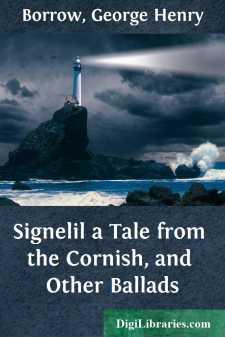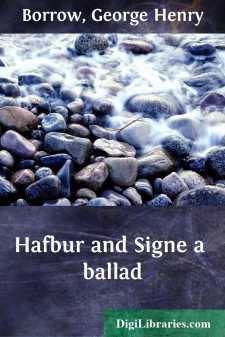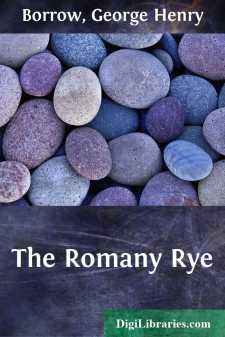Categories
- Antiques & Collectibles 13
- Architecture 36
- Art 48
- Bibles 22
- Biography & Autobiography 813
- Body, Mind & Spirit 141
- Business & Economics 28
- Children's Books 12
- Children's Fiction 9
- Computers 4
- Cooking 94
- Crafts & Hobbies 4
- Drama 346
- Education 46
- Family & Relationships 57
- Fiction 11826
- Games 19
- Gardening 17
- Health & Fitness 34
- History 1377
- House & Home 1
- Humor 147
- Juvenile Fiction 1873
- Juvenile Nonfiction 202
- Language Arts & Disciplines 88
- Law 16
- Literary Collections 686
- Literary Criticism 179
- Mathematics 13
- Medical 41
- Music 40
- Nature 179
- Non-Classifiable 1768
- Performing Arts 7
- Periodicals 1453
- Philosophy 64
- Photography 2
- Poetry 896
- Political Science 203
- Psychology 42
- Reference 154
- Religion 513
- Science 126
- Self-Help 83
- Social Science 81
- Sports & Recreation 34
- Study Aids 3
- Technology & Engineering 59
- Transportation 23
- Travel 463
- True Crime 29
George Henry Borrow
George Henry Borrow (1803-1881) was an English author known for his travel literature and novels, most notably "The Bible in Spain" and "Lavengro." His works often drew on his extensive travels across Europe and his deep interest in the Romani people and their culture. Borrow's unique storytelling combined his personal adventures with rich cultural and linguistic observations, making his writings a significant contribution to 19th-century literature.
Author's Books:
Sort by:
INTRODUCTION The Russians have three grand popular tales, the subjects of which are thievish adventures. One is called the Story of Klim, another is called the Story of Tim, and the third is called the Story of Tom. Below we present a translation of the Story of Tim. That part of the tale in which Tim inquires of the drowsy Archimandrite as to the person to whom the stolen pelisse is to be awarded,...
more...
EMELIAN THE FOOL In a certain village there lived a mujik, or yeoman, who had three sons; two were clever, but the third was a fool, who was called Emelian. When the good man had reached an extreme old age, he called all his sons to him, and said: “Dear children, I feel that I have not long to live; I therefore leave you house and cattle, which you will divide in equal portions. I also leave you...
more...
PREFATORY NOTE In 1845 Richard Ford published his Hand-Book for Travellers in Spain and Readers at Home [2 Vols. 8vo.], a work which still commands attention, and the compilation of which is said to have occupied its author for more than sixteen years. In conformity with the wish of Ford (who had himself favourably reviewed The Bible in Spain) Borrow undertook to produce a study of the Hand-Book for...
more...
To the Rev. J. Jowett Willow Lane, St. Giles, Norwich, Feb. 10th, 1833. Revd. and dear Sir,—I have just received your communication, and notwithstanding it is Sunday morning, and the bells with their loud and clear voices are calling me to church, I have sat down to answer it by return of post. It is scarcely necessary for me to say that I was rejoiced to see the Chrestomathie Mandchou, which will...
more...
I. KING VALDEMAR’S WOOING. Valdemar King and Sir Strange bold At table sat one day,So many a word ’twixt them there passed In amicable way. “Hear Strange, hear! thou for a time Thy native land must leave;Thou shalt away to Bohemia far My young bride to receive.” Then answered Strange Ebbesen, To answer he was not slow:“Who shall attend me of thy liegemen, If I to...
more...
QUEEN BERNGERD Long ere the Sun the heaven arrayed,For her morning gift her Lord she prayed:“Give me Samsoe to have and to hold,And from every maiden a crown of gold.” Woe befall her, Berngerd. The King he answered Berngerd thus:“Madam, crave something less of us,For many a maid lives ’neath our swayTo ’scape from death could the like not pay.” Woe befall her, Berngerd. “My gentle...
more...
SONG THE FIRST. Up Riber’s street the dance they ply, The Castle’s won, the Castle’s won!There dance the knights most merrily, For young King Erik Erikson. On Riber’s bridge the dance it goes, The Castle’s won, the Castle’s won!There dance the knights in scollop’d shoes, For young King Erik Erikson. ’Twas Riber Wolf the dance who led, The Castle’s won, the...
more...
SIGNELIL The Lady her handmaid to questioning took:“Why dost thou so sickly and colourless look?” But sorrow gnaws so sorely! “’Tis little wonder if sickly I’m growing, Malfred my lady!So much am I busied with cutting and sewing.” “Erewhile was thy cheek as the blooming rose red,But now thou art pale, even pale as the dead.” “To conceal the truth longer ’tis vain to essay,My...
more...
HAFBUR AND SIGNE Young Hafbur King and Sivard King They lived in bitter enmity;’Twas Signe proud that caused their feud, Of maidens all the fairest she. It was youthful Hafbur King Awaked at midnight with a bound,And full of dread he straightway said His wondrous dream to all around. “Methought I was in heaven’s domain, Within that place so fair to view,And held to my breast...
more...
The Dingle at Night—The Two Sides of the Question—Roman Females—Filling the Kettle—The Dream—The Tall Figure. I descended to the bottom of the dingle. It was nearly involved in obscurity. To dissipate the feeling of melancholy which came over my mind, I resolved to kindle a fire; and having heaped dry sticks upon my hearth, and added a billet or two, I struck a light, and soon produced a...
more...


